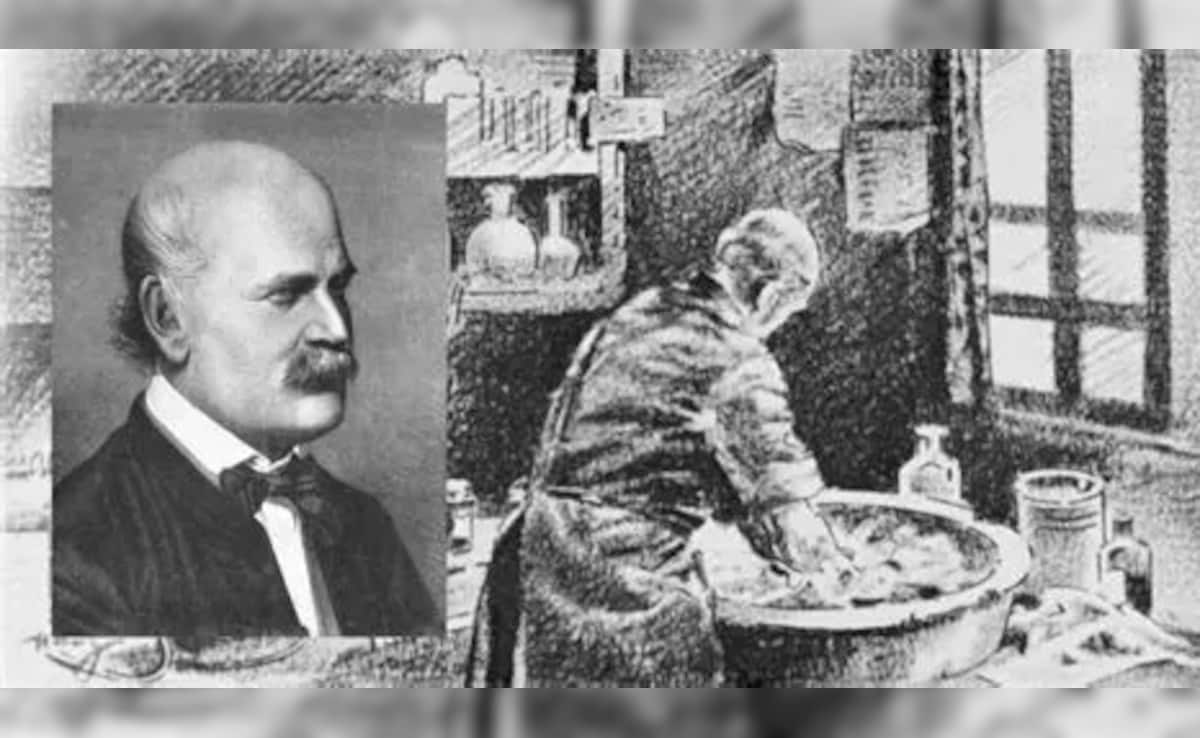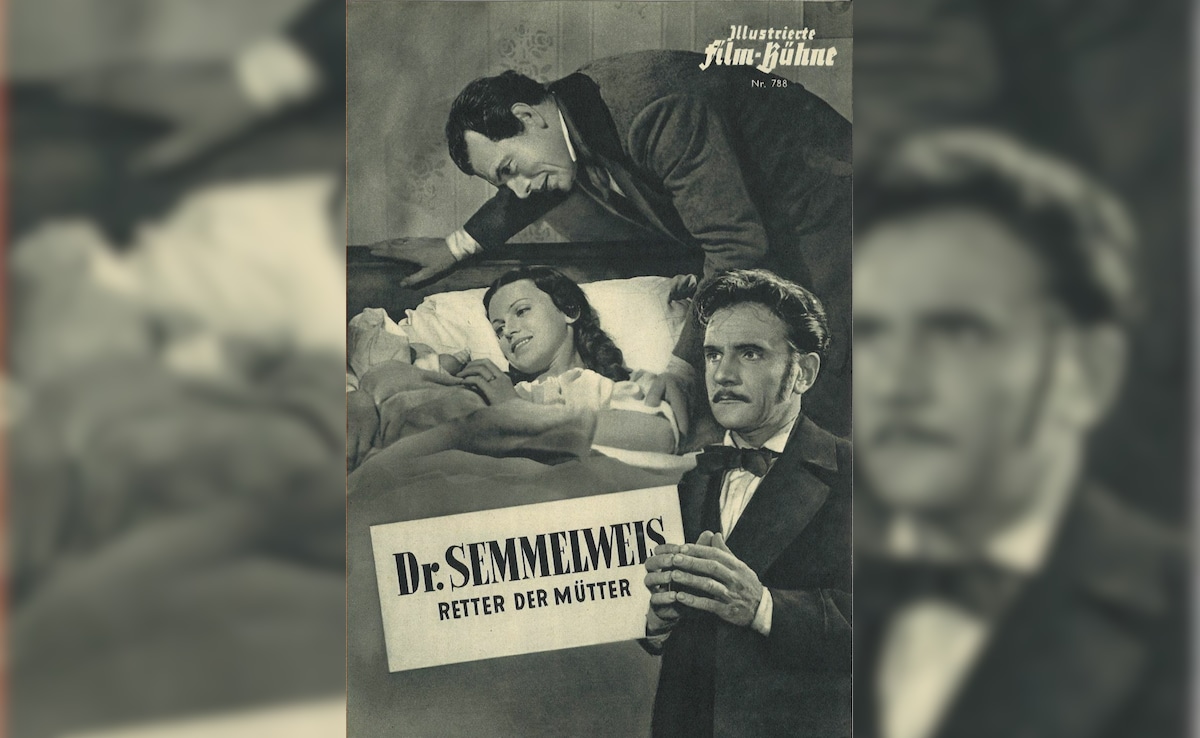
Imagine a hospital where one maternity ward's mothers died at five times the rate of another, and the difference was whether doctors carried the smell of corpses on their hands. In 1847 Vienna, Ignaz Philipp Semmelweis, a young Hungarian obstetrician, noticed exactly that and ordered his colleagues to scrub their hands in a chlorinated lime solution before attending births. Maternal deaths from "childbed fever" plunged almost overnight. Yet his colleagues rejected both the practice and the man who urged it. Today his prescription, wash your hands, is the cornerstone of infection control worldwide, taught in clinics, schools and public health campaigns. Everyone who has lived through the Covid-19 pandemic knows how valuable Semmelweis' prescription was, without ever knowing his name or story.
But the reasons Semmelweis was ignored then are as instructive as his finding. Scientific cultures resist ideas that threaten status quos or lack an accepted explanation. Understanding Semmelweis, therefore, is more than a history lesson. It's a practical reminder that simple, evidence-based practices (like hand hygiene) save lives, and that humility and communication matter in medicine.
Semmelweis' Discovery: Simple, Brutal, And Effective
At Vienna General Hospital's First Obstetrical Clinic, maternal mortality from puerperal fever or childbed fever reached alarming levels in the 1840s, often above 10-15% in some months. Semmelweis compared two clinics, one staffed by doctors and medical students, another by midwives. He did not reach the conclusion that doctors were inadvertently spreading the infection immediately. In fact, he tried-and-tested a number of possible causes, including changing the route of a priest who rang a bell while doing his rounds.
Finally, Semmelweis observed a major difference between the two clinics: The doctor-run ward did autopsies, the midwives' ward did not. Semmelweis hypothesised that "cadaverous particles" transferred on physicians' hands after dissections, and then the same doctors went off to deliver babies without washing their hands (yes, unthinkable today) and were accidentally infecting mothers.
As a trial, Semmelweis introduced mandatory handwashing with chlorinated lime (calcium hypochlorite) for all the doctors who reported to him. Within weeks mortality in the doctors' ward fell from around 18% to below 2%, and during some months to zero. The evidence was dramatic, and a simple change saved lives.

Semmelweis is known as the "father of hand hygiene"
Photo Credit: Google Images: Creative Commons
Why His Colleagues Didn't Believe Him
In 1850, Semmelweis took the findings of his hospital trial to the medical community during a major conference of doctors and surgeons in Vienna. His theory around handwashing and its life-saving impacts was booed down. In fact, the sum result of the whole incident was that Semmelweis was summarily discredited by the medical community, grew "insane" over time, was actually sent to an asylum, where he died in 1865.
It's tempting to paint Semmelweis's opponents as merely stubborn. The reality is messier and illuminating. Several factors explain the rejection:
- No theoretical backing yet: Germ theory had not been established. Louis Pasteur's work and Joseph Lister's antisepsis came later. So, Semmelweis could show an effect but not explain it with microbes. Scientists of the era wanted mechanisms, not just correlations.
- Professional pride and insult: Suggesting doctors were causing deaths implied moral and professional failure. Many physicians bristled at the idea that their hands, not patients' conditions, were to blame.
- Method and temperament: Semmelweis's communication style reportedly became abrasive over time; he published his findings in late (1861) and sometimes attacked critics publicly, which alienated potential allies. Marketing pundits today will clearly tell you what Semmelweis didn't realise in his lifetime - personal dynamics matter in how innovations spread.
- Anomalous results are suspicious: Medical reasoning in the 1850s favoured pathophysiological theories. Basically, an intervention that worked without an established cause was viewed skeptically. Modern historians point out that methodological conservatism, not just prejudice, played a role.

An ad poster in German, hailing Dr Semmelweis as the "saviour of mothers"
Photo Credit: Google Images: Creative Commons
The Public Health Legacy: Hand Hygiene Today
No matter how tragic his life may have been, Semmelweis's intervention is the ancestor of modern hand hygiene. Today, the World Health Organization (WHO) cites handwashing among the most effective, low-cost ways to prevent infections and mandates hand hygiene as a core patient-safety practice in healthcare settings worldwide. Hospitals now monitor hand hygiene compliance, use alcohol-based hand rubs and run campaigns such as WHO's "Save Lives: Clean Your Hands." Semmelweis's instinct, interrupting transmission via hands, underpins all of this.
A Bittersweet Ending, And An Overdue Vindication
Semmelweis died in 1865, largely unrecognised and tragically institutionalised after a mental health decline. Only later, with the rise of germ theory and antiseptic practice, did the medical world fully appreciate his contribution. Today, history honours him as the "saviour of mothers," and his experience remains a cautionary tale about how good science can be ignored when it threatens entrenched thinking. Yet it also inspires humility: Medicine advances both through bold observation and through better ways of persuading colleagues and protecting patients.
Why Semmelweis Still Matters To Your Health
Ignaz Semmelweis's life shows that a single observation, applied with persistence, can change outcomes for thousands. But only if the idea is communicated, supported and adopted. The next time you wash your hands before a meal, after using the bathroom, or when visiting a clinic, remember that this tiny act is the living legacy of a 19th-century doctor who once smelled corpses on his colleagues' hands and used common sense, and later science, to stop needless deaths. In public health, humility and hygiene remain powerful partners.
Disclaimer: This content including advice provides generic information only. It is in no way a substitute for a qualified medical opinion. Always consult a specialist or your own doctor for more information. NDTV does not claim responsibility for this information.
Track Latest News Live on NDTV.com and get news updates from India and around the world

